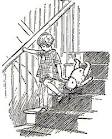The most common question I get in this job is “So what exactly does the OECD do?”.
By the end of this blog I will have suggested that part of the answer is “it takes new approaches to economic challenges”.
But let me start my answer by recalling the OECD’s founding mission, in 1961, “to promote policies designed to achieve the highest sustainable economic growth and employment, and a rising standard of living”. The modern-day strap-line is “Better Policies for Better Lives”.
Never has it been so important for the OECD to succeed, as we try to emerge from the worst economic crisis since the organisation was founded.
At the recently concluded annual OECD Ministerial, Secretary-General Angel Gurria’s advice to the 60+ Ministers was, “Go Structural, Go Social and Go Green”: not growth for growth’s sake, but a job-rich growth with more equitable and environmentally sustainable results. Ministers also endorsed reports on Skills, Gender, Development, Wellbeing and Inequality, and encouraged the OECD to keep pushing its global economic standards to keep markets fair and open.
This brings me to the title of this blog – “New Approaches to Economic Challenges”. This is the name of a new project launched at the Ministerial. The OECD and outside experts will study the lessons of the economic and financial crisis, and refresh and re-set the way the OECD thinks about policy frameworks in order to be better able to meet future challenges.
This project feels to me like a vital evolution in the OECD’s thinking. As the scoping paper puts it “in a world characterised by complexity…with interactions, feedback, nonlinearities and tipping points…policy makers need to rethink the kind of society we want, and re-examine the economic models and other tools we use to create it”.
For me, a key element of this project will be to work out how to take an increasingly integrated approach to the challenges we face. For example, too often economic, social and environmental policies are delivered in isolation from each other, rather than being mutually reinforcing. The trade-offs and spillovers aren’t well understood. We have neither managed financial risk in recent years, nor been sufficiently long-term in our thinking. We have made extraordinary progress in recent decades, but the strains in the economic and financial system are now all too evident. To continue to make progress we need to be humble about the limits of current frameworks. New thinking is needed.
The OECD has a huge natural advantage as it embarks on this thinking, in that many of the world’s best experts and datasets sit together under the same roof, and they have good relationships with other institutions who are thinking similar thoughts.
I like what the playwright Tom Stoppard said in ‘Arcadia’ (thanks Eric Beinhocker):
Or if you prefer the wisdom of children’s books, in the immortal words of AA Milne:
“Here is Edward Bear, coming downstairs now, bump, bump, bump, on the back of his head, behind Christopher Robin. It is, as far as he knows, the only way of coming downstairs, but sometimes he feels that there really is another way, if only he could stop bumping for a moment and think of it.”
What do you think our New Approaches to Economic Challenges should be?

